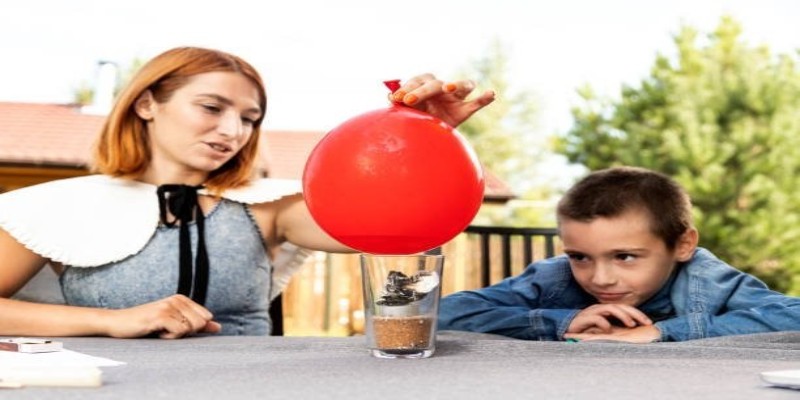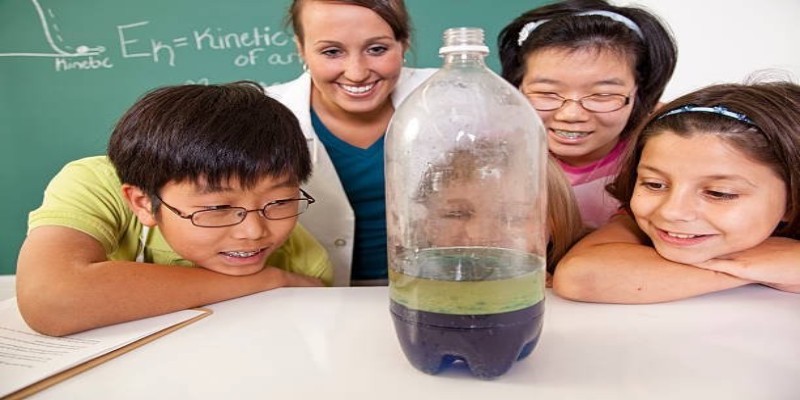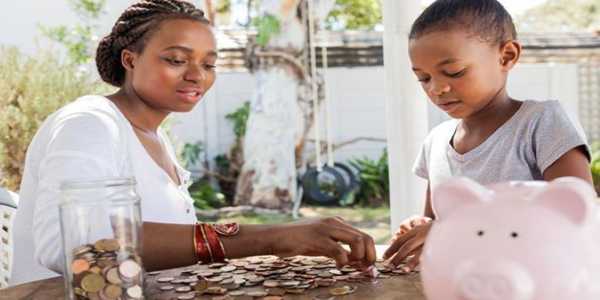Mother & baby
How To Teach Kids About Money Early On
1757645852000
No fancy lab coat or high-tech gadgetry required—science is literally everywhere, waiting to be explored! If you really want to astonish your kids and collect cool-parent trophies, you have hit the gold mine.
No fancy lab coat or high-tech gadgetry required—science is literally everywhere, waiting to be explored! If you really want to astonish your kids and collect cool-parent trophies, you have hit the gold mine.
These cool DIY science experiments for kids are the most fun mix of chaos-uh, we mean-learning-and are bound to get a lot of oohs, aahs, and perhaps some messiness (totally worth it).
Here you go with an experiment! Trust us; you'll never look at dish soap the same way.

The Good Old Baking Soda Volcano
Which kid doesn't love a good ol' eruption? The baking soda volcano is a classic experiment that teaches our young minds about chemical reactions in a very thrilling way.
You will need:
• Baking soda
• Vinegar
• Dish soap
• (Optional, red food coloring)
• A plastic bottle or paper-mâché volcano model
How To do:
Set your bottle in the center of your "volcano."
Add baking soda, a few drops of dish soap, and food coloring to the bottle.
Pour in some vinegar and watch it erupt!
Why It is Cool:
It's a perfect way to introduce kids to the idea of chemical reactions using everyday supplies. By doing this, they are always excited for the "eruption" and want to learn more.
Magic Milk Experiment
This colorful experiment will mesmerize your kids while teaching them about the properties of fat and how soap works.
What You'll Need:
• Whole milk
• Food coloring
• Dish soap
• A shallow dish
How to Do It:
Pour milk into a shallow dish.
Add drops of different food coloring around the milk.
Dip a cotton swab in dish soap and touch it to the milk's surface. Watch the colors burst into motion!
Why It's Educational:
It's a fun way to explain how soap breaks down fats, using vivid colors to keep kids engaged.
Homemade Slime
Slime is a fan favorite, blending science with sensory play. Making slime at home is simple and offers a hands-on lesson in polymers.
What You'll Need:
• White school glue
• Borax or saline solution
• Water
• Food coloring (optional)
How to Do It:
Mix glue and water in a bowl. Add food coloring if desired.
Slowly add the borax solution while stirring until the mixture thickens.
Knead the slime until it reaches your preferred consistency.
Why It's Fun:
It's an exciting way to explore states of matter—solid, liquid, and something in between! Kids love stretching and molding it.
Balloon Rocket
Turn a balloon into a rocket and introduce the principles of thrust and propulsion.
What You'll Need:
• A balloon
• String
• A straw
• Tape
How to Do It:
Thread the string through the straw and tape the straw to an inflated balloon.
Hold the string taut and release the balloon, watching it shoot across!
Why Kids Love It:
It's a great way to show Newton's Third Law of Motion—every action has an equal and opposite reaction—in a way that's easy to understand and full of laughter.

Egg in a Bottle Experiment
This experiment demonstrates air pressure in a mind-boggling way.
What You'll Need:
• A peeled, hard-boiled egg
• A glass bottle with a mouth slightly smaller than the egg
• Matches
How to Do It:
Drop a lit match into the bottle and quickly place the egg on top of the bottle's opening.
Watch as the egg gets sucked into the bottle.
Why It's Amazing:
It's a visual and dramatic way to teach kids about air pressure and how heat affects it.
DIY Lemon Battery
Who knew lemons could power a light bulb? This experiment introduces kids to the basics of electricity.
What You'll Need:
• Lemons
• Copper coins
• Zinc nails
• Wires with alligator clips
• A small LED light
How to Do It:
Insert a copper coin and a zinc nail into each lemon.
Connect the lemons in series with wires.
Attach the LED light, and watch it glow!
Why It's Electrifying:
It's a fun introduction to circuits and how electricity can be generated from chemical reactions.
Static Electricity with Balloons
Teach kids about static electricity with a simple balloon experiment.
What You'll Need:
• Balloons
• Pieces of paper
How to Do It:
Blow up the balloon and rub it against your hair or a wool sweater.
Hold the balloon near the pieces of paper and watch them stick!
Why It's Shocking:
This is a great way to demonstrate the concept of static electricity in an interactive, hands-on way.
DIY Lava Lamp
Bring the '70s back with a DIY lava lamp that shows how oil and water interact.
What You'll Need:
• A clear bottle
• Vegetable oil
• Water
• Food coloring
• Alka-Seltzer tablets
How to Do It:
Fill the bottle with oil, then add water and a few drops of food coloring.
Drop in an Alka-Seltzer tablet and watch the magic happen!
Why It's Mesmerizing:
It's an easy way to teach kids about density and immiscible liquids while creating a cool visual effect.

Walking Water Experiment
This experiment combines color and capillary action to create a rainbow in motion.
What You'll Need:
• 3 glasses of water
• Paper towels
• Food coloring
How to Do It:
Fill two glasses with colored water and place an empty glass in the middle.
Create paper towel bridges between the glasses.
Watch the water "walk" into the empty glass, mixing colors as it goes.
Why It's Magical:
It is simply a test, but from a purely conceptual perspective, it is extremely beautiful to showcase absorption and color mixing.
Learning The Fun Way!
Science can be made fun without being too boring. With easy STEM activities for kids, learning can be an exciting adventure - be it from building volcanoes or making their own lava lamps; these are just some of the best hands-on science experiments that can keep kids glued and curious.
So, put all supplies on the table, roll up to the elbows, and you are ready to explore some magic behind science at home!
Do you like this article?
Mother & baby
1757645852000
General Finance
1757645995000
Career & Education
1757645873000
Mother & baby
1757645852000
Fashion
1757645952000
Mother & baby
1757645852000
Career & Education
1757645873000
Fashion
1757645952000
Mother & baby
1757645852000
Career & Education
1757645873000








